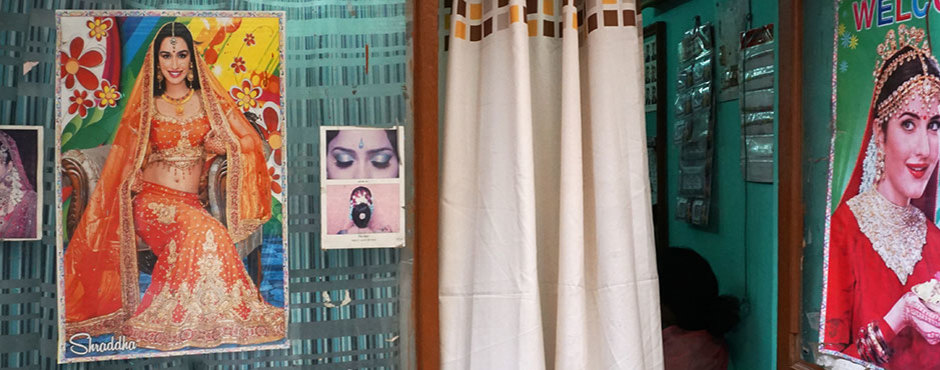Priya Sen’s newest documentary explores the everyday lives of young women in contemporary Delhi. The film is available for streaming as part of Birkbeck’s Arts Week. In a podcast that accompanies the documentary, the director was interviewed by Professor Melissa Butcher (Geography, Birkbeck) about the process of film-making in urban India. Together, the podcast and the film invite the audience to reflect on how the arts and the social sciences can be used in combination to explore contemporary urban life. The event marks the launch of Birkbeck’s new MA/MSc Cities programme, showcasing its interdisciplinary approach.
The social life of cities
Early thinkers of urbanization reflected on the ways in which city living was transforming the relationship between individuals and others. In the “Metropolis and Mental life”, Simmel coined the famous concept of the “blasé”, in reference to the indifference that urbanites expressed in multiple everyday interactions. Compared to traditional rural settings, he argued that urban life allowed for a certain degree of autonomy. In the city, people were liberated from the constant social expectations of communitarian life and could thus behave more freely. What would Simmel say if he could watch Priya Sen’s exploration of everyday life in Delhi?
In “Yeh Freedom Life” we follow the lives of Sachi and Parveen, two young people living in a working-class neighborhood (Ambedkar Nagar) of Delhi. The film shows their struggles to negotiate family and societal expectations for “the right to live their lives properly and openly”. Far from the “blasé” attitude, what we observe is the constant scrutiny of others in relation to the protagonists’ choices of who to love and how to live their lives. The film invites viewers to reflect on how patriarchal norms are contested but also reproduced and accommodated within India’s fast-urbanizing society. This topic has been recently discussed by Sanjay Srivastava during Birkbeck’s “Gendered cities” webinar in which he explored the spatial-politics of gender in contemporary urban India. For Sanjay, rather than challenging gendered norms, Indian society is incorporating those normative ideas through practices of “modern” consumption.
(Un)making gender in urban India
The documentary opens with scenes of an event where a female audience listens to a talk based on Hindu mythology followed by a discourse on the importance of women’s education. The event can be seen as a space where “traditional” and “modern” ideals are combined to offer a standard of womanhood compatible with contemporary India. In the event, we are first introduced to Sachi and her soon to be married friend Didi. They both work in a beauty parlor where they spend their time discussing their love affairs while threading costumers’ eyebrows with impressive dexterity. In the “Beauty Care and Training Centre”, femininity standards are being produced but normative behaviors are also subverted through Sachi’s personal struggle for a fulfilling life. Despite Didi’s protest over the sorrow inflicted on her friend’s family as a result of her unusual choices in love, Sachi refutes any critical commentary, arguing that “if you live by what people around you say, life will be very hard”.
The constrains of associational life
Similar to Sachi, Parveen also struggles for love and happiness, facing the negative consequences of his unconventional life. He works on a cigarette stall owned by her family located in a busy intersection. Despite his hard work for the family business, he remains an outcast, often facing the hostility of those around him. Nonetheless, he is unapologetic about who he is and willing to have a less comfortable life to keep his autonomy. His discourse never veers towards a rights-based language, always foregrounding instead the truth of his emotions and his need for freedom. Like many others, he is willing to accept the penalty of exclusion from social networks in order to claim a “freedom life”.
The film reveals the complex ways in which solidarity actually works. The reality is far from the idyllic appraisals of associational life often celebrated by international development agencies for its beneficial role in poverty alleviation. In those accounts, communities are often portrayed as unproblematic networks of solidarity and trust that can be accessed by its members in case of need. Particularly in Southeast Asia, schemes of microcredit and other market-oriented initiatives focused on the inclusion of the “bottom of the pyramid” usually assume the existence of such socially cohesive networks. However, as Priya Sen’s documentary reveals, the maintenance of social networks often require adherence to social norms that either constrain individual’s autonomy or exclude those who are non-conforming. The film also illustrates how the complex realities of urban life in postcolonial settings are not easily captured by rigid frameworks.
A view from the South
Recently, postcolonial urban thinkers have challenged “universal” narratives of urbanization rooted on Western experiences. Calling for a “view from the South”, urban scholars have challenged “modernizing” discourses that ignore situated trajectories of urbanization and impose inadequate analytical frames and solutions. In this context, researchers on urban India have criticized the use of binary categories, such as modern/traditional, formal/informal, as unsuitable for uncovering the complexities of contemporary urbanization in the country. In “Yeh Freedom Life”, the unfolding of everyday urban life reveals how rigid categorizations of gender, femininity and sexuality are simultaneously reinforced and contested.
Dr Mara Nogueira is a Lecturer in Urban Geography and Programme Director of the MA/MSc Cities programme.

